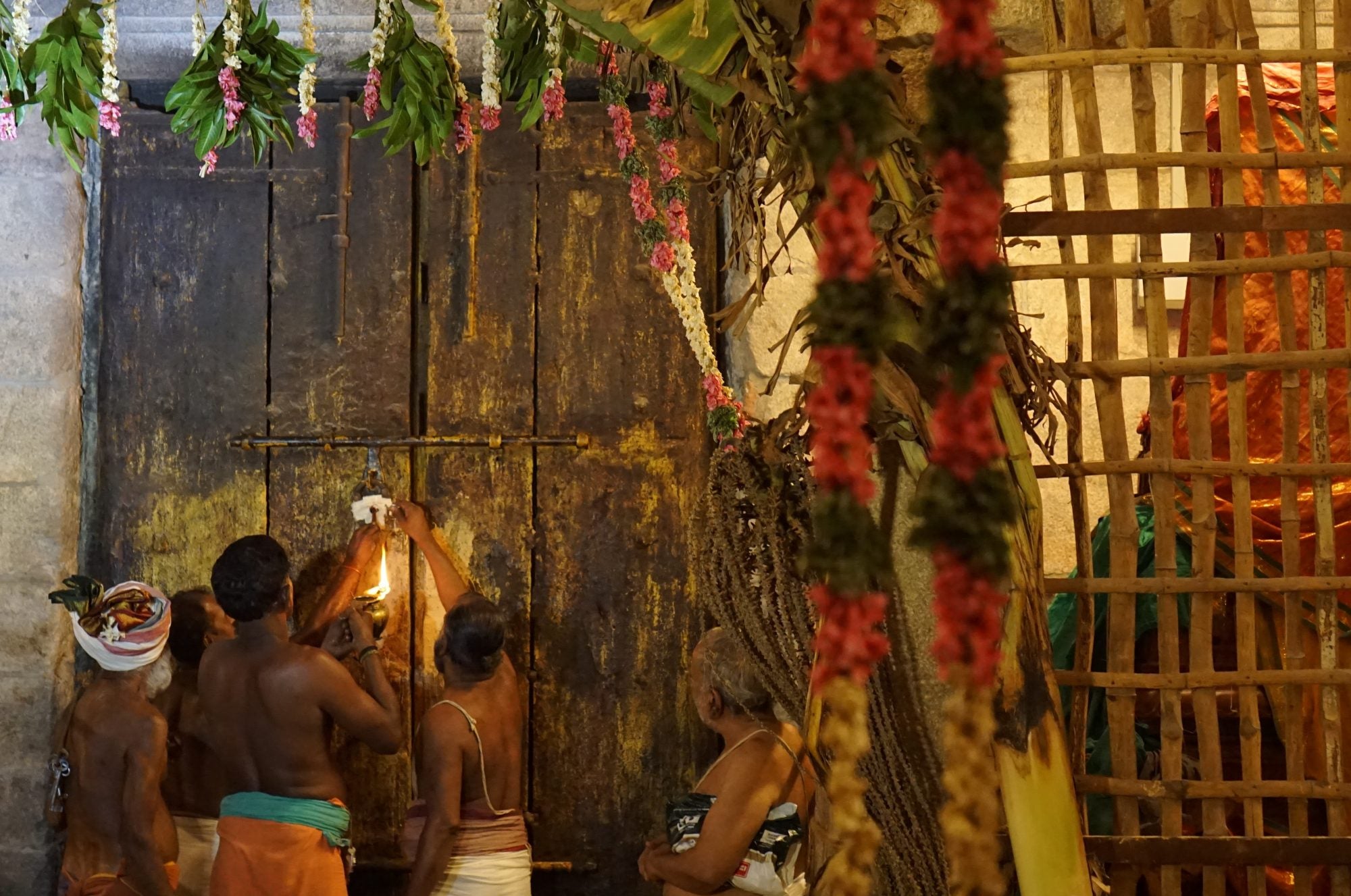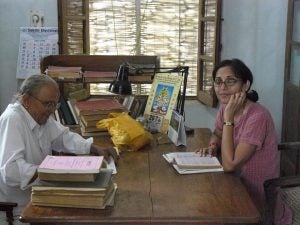May 22, 2017
I’ve spent the last several days reading and re-reading Beowulf, in preparation for class this week. I am utterly, completely in its thrall. The Heaney translation is masterful–the control of rhythm and rhyme is delicate yet unyielding. The Tolkien translation, so different, has its own power–he translates with an unerring linguist’s ear.
I have a seed of an idea, about finding a way to translate the alliterative structure of Beowulf as interpreted by Heaney into an English translation of Alvar poetry. And then, to have it sung. Stay tuned.
May 24, 2017
So here’s the first draft of the first experiment, trying to adapt Heaney’s translation approach of Beowulf to the Tiruvaymoli.
I am unable to get the caesura to work like I want it to, and it’s inconsistent. But I was able to replicate the alliteration in each lines’ two halves. I rather like the effect it produces, something a little closer to the bone of the Tamil, and I also like how much more miserly with words, and syllables it forced me to be. I am particularly proud of the pairing of Rama in the first line and Brahma in the last. I still think I have too many words, but all in all, not bad for a first outing; I give myself a C+.
kaṟpār irāma pirāṉai allāl maṟṟum kaṟparō
paṟ-pā mutalāp-pul eṟumpu āti oṉṟu iṉṟiyē
naṟ pāl ayōttiyil vaḻum carācaram muṟṟavum
naṟ-pālukku uyttaṉaṉ nāṉmukaṉār peṟṟa nāṭṭulē
VII.5.1 If you can learn of great Rama, why learn of anything else?
The slimmest blade of grass, the smallest ant, all things
in Ayodhya, aware and unaware, he lifted them
all who lived in the land made by Brahmā.
Nammalvar. Tiruvaymoli. VII. 5.1.

